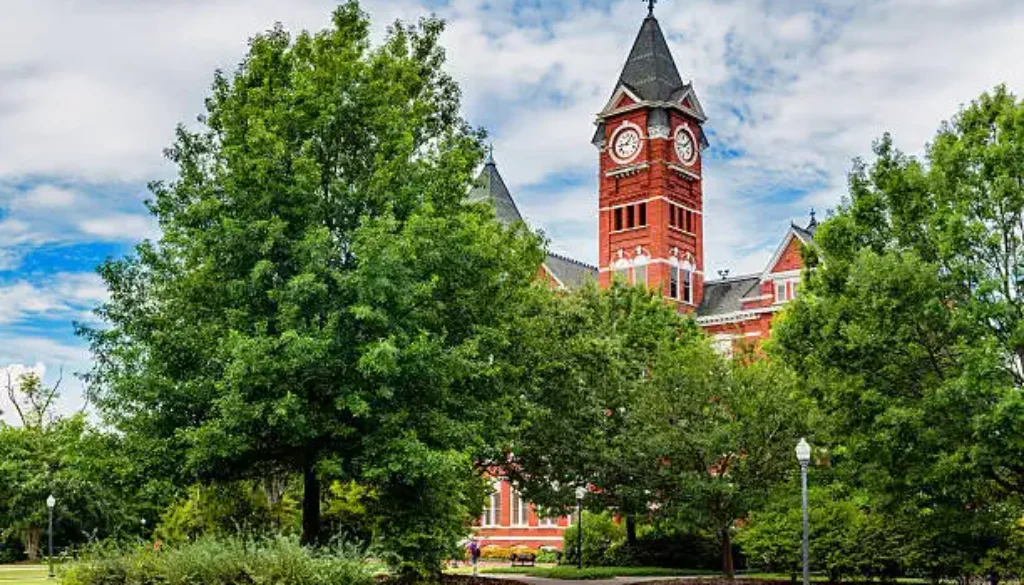Alabama Senior Assistance Programs, Benefits, and Grants (2026)
 Senior Population: 1,293,247
Senior Population: 1,293,247 Median Age: 70.0
Median Age: 70.0 Veterans: 12.9%
Veterans: 12.9% Disability: 34.2%
Disability: 34.2% Renters: 16.9%
Renters: 16.9% With Social Security Income: 76.6%
With Social Security Income: 76.6% With Food Stamp/SNAP Benefits: 10.9%
With Food Stamp/SNAP Benefits: 10.9% Below 100% of Poverty Level: 12.8%
Below 100% of Poverty Level: 12.8%Last updated: | Sources checked regularly; official agency websites are the final authority on current rules and amounts.
Key Takeaways
Bottom Line Up Front: Alabama offers over 30 assistance programs for low-income older adults, but rural isolation, transportation barriers, and complex eligibility requirements create significant obstacles to accessing benefits.
Alabama’s Reality: With around 956,000 seniors (17.5% of population), Alabama has one of the fastest-growing senior populations in the South. Rural counties like Monroe, Wilcox, and Greene have some of the highest senior poverty rates in the nation, making programs like Medicaid waivers and SNAP critically important.
Who This Guide Helps:
- Alabama older adults 60+ with limited income
- Those earning less than 200% of federal poverty level
- Individual income under $31,300/year
- Couples earning under $42,540/year
Critical Alabama Realities:
- Rural isolation: 42% of seniors live in rural areas with limited services
- Transportation deserts: Many counties have no public transit systems
- Healthcare shortages: 23 rural hospitals have closed since 2010
- Digital divide: 35% of rural seniors lack reliable internet access
Best Starting Points:
- Contact Alabama Department of Senior Services: 1-800-AGE-LINE (1-800-243-5463)
- Apply for Alabama Medicaid Waiver if you need daily care assistance
- Check food assistance eligibility: Apply for SNAP
- Call your local Area Agency on Aging
Quick Reference: Major Programs
| Program | Monthly Benefit | Income Limit | Wait Time | Priority Focus |
|---|---|---|---|---|
| Medicaid E&D Waiver | In-home care services | $2,901/month | 60-120 days | Daily care assistance |
| SNAP | $50-292/month | $2,632/month | 7-30 days | Food assistance |
| SSI | Up to $967/month | $1,255/month | 30-90 days | Basic living expenses |
| LIHEAP | $300-900/year | $2,316/month | First-come basis | Utility bills |
| Section 8 | Rent = 30% income | Varies by county | 1-4 years | Housing vouchers |
| Alabama Medicaid | Healthcare coverage | $2,901/month | 30-45 days | Medical insurance |
| QMB Program | Medicare premiums | $1,325/month | 30 days | Medicare costs |
| Project SHARE | $300/year average | Age 60+ priority | 2-4 weeks | Emergency utilities |
For a deeper walkthrough of these core programs and how they can combine into $2,000+ in monthly help, the senior benefits in 2026 guide breaks down realistic amounts and timelines.
What’s New in 2026
Program Updates and Enhancements:
- Medicare Part D prescription cap reduced to $2,000 annually (was $3,300 in 2024)
- SNAP work requirement age increased from 52 to 54 years old
- Alabama Housing Trust Fund launched with $20 million for senior housing
- LIHEAP income limits increased by 3.8% due to federal poverty guideline adjustments
- Medicare Savings Programs asset limits eliminated in Alabama (joins 10 other states)
- Telehealth expansion for rural seniors through Alabama Medicaid
Alabama-Specific Improvements:
- Mobile healthcare units expanded to serve Black Belt counties
- Enhanced rural broadband through Alabama Broadband Accessibility Act
- Additional cooling centers established for extreme heat events
- Prescription delivery programs expanded statewide through Alabama Medicaid
Healthcare Programs
Alabama Medicaid for Elderly and Disabled (E&D) Waiver
Alabama’s Premier Senior Care Program: The Elderly and Disabled Waiver is Alabama’s Medicaid program that provides comprehensive long-term care services to help older adults remain in their homes and communities rather than entering nursing facilities. This program serves as the backbone of Alabama’s approach to senior care.
Eligibility Criteria:
- Age 65+ or disabled adults 18+
- Income below $2,901/month individual (applies SSI methodology)
- Assets under $2,000 individual, $4,000 couple (home and one vehicle excluded)
- Medical necessity: Must require nursing home level of care
- Alabama residency required
Services Covered:
- Personal care assistants: Bathing, dressing, meal preparation, medication management
- Homemaker services: Light housekeeping, laundry, grocery shopping
- Adult day health programs: Respite care for family caregivers
- Home modifications: Ramps, grab bars, accessible bathrooms, stair lifts
- Emergency response systems: Medical alert devices
- Transportation: Medical appointments and pharmacy trips
- Companion services: For isolated seniors
Application Process:
- Contact Alabama Medicaid Agency: 1-800-362-1504
- Complete pre-screening assessment by phone (30-45 minutes)
- Submit medical documentation from all treating physicians
- Schedule comprehensive in-home assessment (2-4 hours)
- Financial eligibility review with bank statements and income verification
- Wait for approval decision and service plan development
⏰ E&D Waiver Reality: The application process typically takes 60-120 days, with rural applicants facing longer delays due to limited assessment staff. Medical assessments are thorough, and approximately 30% of initial applications are denied for not meeting nursing home level criteria. The program has limited slots, so approval doesn’t guarantee immediate services.
Geographic Availability:
- Urban areas (Birmingham, Mobile, Huntsville): Full services with multiple provider options
- Rural counties: Fewer providers, longer wait times, heavy reliance on family caregivers
- Black Belt region: Extremely limited options, often 6+ month waits for services
Alabama Medicaid
Healthcare Coverage for Low-Income Seniors: Alabama Medicaid provides comprehensive healthcare coverage for eligible older adults, working alongside Medicare for those who qualify for both programs (dual-eligible beneficiaries).
Eligibility for Seniors (65+):
- Very low income following SSI-related Medicaid rules (exact limits change annually)
- Assets under $2,000 individual, $3,000 couple (home and one vehicle excluded)
- Alabama residency and U.S. citizenship or qualified immigration status
Most seniors qualify for regular Alabama Medicaid only at very low SSI-level incomes, while nursing-home and Elderly & Disabled (E&D) Waiver Medicaid can allow up to $2,901 per month in income for a single applicant (300% of the SSI federal benefit rate), subject to separate asset and medical-need rules.
Coverage Includes:
- Primary care physician visits and specialist consultations
- Hospital emergency room and inpatient care (covers Medicare deductibles)
- Prescription medications with $1-3 copays
- Preventive services including annual wellness visits and screenings
- Mental health and substance abuse treatment
- Limited dental coverage (emergencies, extractions, complete dentures)
- Medical transportation to appointments (NEMT)
- Durable medical equipment and supplies
Apply: Alabama Medicaid or call 1-800-362-1504
Alabama Medicaid Reality: While Alabama Medicaid covers most generic medications, brand-name drugs often require prior authorization that can take 7-14 business days. Seniors should work with physicians to identify covered alternatives or prepare for potential appeals on denied medications.
Medicare Savings Programs (MSP)
Medicare Premium and Cost-Sharing Assistance: MSPs help pay Medicare premiums, deductibles, and copayments for eligible Alabama seniors. Alabama has no asset limits for MSPs as of 2025, making it easier to qualify than most other states.
MSP Program Types:
| Program | Income Limit (Individual) | Income Limit (Couple) | Benefits Covered |
|---|---|---|---|
| Qualified Medicare Beneficiary (QMB) | $1,325/month | $1,783/month | All Medicare premiums, deductibles, copays |
| Specified Low-Income Medicare Beneficiary (SLMB) | $1,585/month | $2,135/month | Medicare Part B premium ($185/month) |
| Qualifying Individual (QI) | $1,781/month | $2,400/month | Partial Medicare Part B premium |
Apply: Through Alabama Medicaid at medicaid.alabama.gov or call 1-800-362-1504
QMB Reality Check: QMB participants pay no copays for Medicare-covered services, but some providers illegally bill QMB patients anyway. If this happens, report the provider to Alabama Medicaid immediately. QMB also automatically qualifies you for Extra Help with prescription drug costs, saving up to $6,200 annually.
Alabama State Health Insurance Assistance Program (SHIP)
Free Medicare Counseling and Enrollment Help: Alabama SHIP provides one-on-one counseling to help seniors navigate Medicare options, understand coverage, and resolve billing problems.
Services Provided:
- Medicare plan comparison and enrollment assistance during Open Enrollment
- Prescription drug plan analysis to minimize out-of-pocket costs
- Help with Medicare billing problems, claim denials, and appeals
- Medicare fraud prevention education and scam reporting
- Assistance with Medicare Supplement insurance decisions
Contact: 1-800-243-5463 – Available at all 13 Area Agencies on Aging statewide
SenioRx Prescription Drug Assistance
Pharmaceutical Manufacturer Patient Assistance: SenioRx connects Alabama seniors with pharmaceutical companies offering free or reduced-cost medications for chronic conditions.
Program Benefits:
- Free prescription medications for qualifying conditions
- Three-month supplies with automatic refills when eligible
- Coverage for chronic conditions like diabetes, heart disease, and COPD
- Connection to pharmaceutical company patient assistance programs
Eligibility Requirements:
- Age 55+ (priority given to 65+)
- Income below 300% of federal poverty level ($3,975/month individual)
- Alabama residency required
- Chronic medical condition requiring ongoing medication therapy
Apply: Contact Area Agencies on Aging at 1-800-AGE-LINE
SenioRx Reality: Program availability varies by pharmaceutical company and medication. Popular diabetes and heart medications are often available, but newer specialty drugs may not be covered. Processing takes 4-6 weeks, so apply before running out of current medications.
Financial Assistance Programs
Supplemental Security Income (SSI)
Federal Cash Assistance for Basic Needs: SSI provides monthly cash payments to older adults with limited income and resources. Alabama SSI recipients automatically qualify for Medicaid and often SNAP, creating a pathway to multiple benefits.
SSI Benefits:
- Maximum monthly payment: $967 for individuals, $1,450 for couples
- Average payment in Alabama: $587/month (below national average)
- Automatic qualification for Alabama Medicaid
- Often automatic qualification for SNAP benefits
Eligibility Requirements:
- Age 65+ or disabled with medical documentation
- Income below $1,255/month (includes Social Security, pensions, work earnings)
- Assets below $2,000 individual, $3,000 couple (excludes home and one vehicle)
- U.S. citizenship or qualified legal immigrant status
- Alabama residency established
Apply: SSA.gov or call 1-800-772-1213
SSI Income Reality: SSI reduces benefits dollar-for-dollar for most other income. If you receive $800 in Social Security, your SSI payment would be reduced to $167/month. However, even small SSI payments trigger automatic Medicaid eligibility, which can be worth thousands in healthcare coverage annually.
Senior Community Service Employment Program (SCSEP)
Part-Time Employment for Low-Income Seniors: SCSEP provides paid training and employment opportunities for adults 55+ who want to continue working while developing new skills.
Program Benefits:
- Paid training at Alabama minimum wage: $7.25/hour ($290/month for 20 hours/week)
- Skills development in computer literacy, customer service, and job readiness
- Resume writing assistance and interview preparation coaching
- Job placement assistance for permanent unsubsidized employment
- Annual physical exam and supportive services
Eligibility Requirements:
- Age 55 or older
- Unemployed and actively seeking work
- Family income below 125% of poverty level ($1,640/month individual)
- Not receiving unemployment compensation or other employment assistance
Apply: Alabama Department of Senior Services at 1-800-AGE-LINE
SCSEP Work Reality: While SCSEP provides valuable income and skills, participants must actively seek permanent employment and provide weekly job search documentation. The program isn’t designed for long-term dependency – maximum participation is usually 4 years. Rural participants may have limited host site options and longer commutes.
Housing Assistance Programs
Section 8 Housing Choice Vouchers
Federal Rental Assistance Program: Section 8 provides rental vouchers allowing older adults to pay only 30% of their adjusted income toward rent, with the voucher covering the remainder up to fair market rent limits. To better understand waitlists and approval odds, the housing and rent assistance programs for seniors guide outlines Section 8 strategies that can shorten delays and avoid common mistakes.
Alabama Housing Authorities Contact Information:
| Housing Authority | Service Area | Phone | Income Limit (Individual) | Current Wait Time |
|---|---|---|---|---|
| Birmingham Housing Authority | Jefferson County | (205) 933-8490 | $34,350 | 2-3 years |
| Mobile Housing Board | Mobile County | (251) 470-7200 | $32,100 | 1-2 years |
| Huntsville Housing Authority | Madison County | (256) 535-0449 | $36,900 | 3-4 years |
| Montgomery Housing Authority | Montgomery County | (334) 956-3450 | $31,750 | 1-2 years |
| Tuscaloosa Housing Authority | Tuscaloosa County | (205) 758-1421 | $33,200 | 1-3 years |
| Alabama Housing Finance Authority | Rural counties | (334) 244-9200 | $25,000-30,000 | 6 months-2 years |
Section 8 Reality Check: Urban areas have longer waiting lists but more housing options and landlord acceptance. Rural areas may have shorter waits but extremely limited rental properties that accept vouchers. Some housing authorities close waiting lists entirely due to overwhelming demand – check status before applying.
USDA Rural Development Section 504 Home Repair Program
Federal Grants and Loans for Rural Home Improvements: Section 504 provides grants up to $10,000 and low-interest loans up to $40,000 for rural seniors to repair and improve homes for safety and accessibility.
Grant Benefits (No Repayment Required):
- Up to $10,000 lifetime limit for essential repairs
- Up to $15,000 in presidentially declared disaster areas
- Priority for seniors 62+ with very low incomes (below 50% area median)
- Focus on health, safety, and accessibility improvements
Eligible Improvements:
- Accessibility: Ramps, grab bars, accessible bathrooms, stair lifts, wider doorways
- Safety: Roof repairs, foundation work, electrical and plumbing updates
- Energy efficiency: Insulation, windows, heating and cooling systems
Eligibility Requirements:
- Age 62+ (for grant priority)
- Own and occupy home as primary residence
- Home located in eligible rural area
- Income below program limits (varies by county and family size)
- Unable to obtain affordable credit elsewhere
Apply: USDA Rural Development Alabama or call (334) 279-3400
Section 504 Reality: Grants must be repaid if the home is sold within 3 years of completion. The application process takes 60-90 days, and work must be completed by approved contractors. Rural applicants may face longer waits due to high demand and limited program funding.
Alabama Housing Finance Authority (AHFA) Programs
State Housing Assistance for Seniors: AHFA operates several programs to help seniors with housing costs, home repairs, and accessibility modifications.
Emergency Home Repair Program:
- Up to $10,000 for essential home repairs
- Priority for seniors 62+ with incomes below 50% area median income
- Covers roof repairs, HVAC systems, plumbing, and electrical work
- Accessibility modifications like ramps and grab bars included
Housing Trust Fund:
- $20 million allocated in 2025 for senior housing development
- Supports both rental and homeownership opportunities
- Priority for rural and underserved areas
Apply: Alabama Housing Finance Authority or call (334) 244-9200
Food Assistance Programs
Supplemental Nutrition Assistance Program (SNAP)
Monthly Food Benefits for Grocery Purchases: SNAP provides monthly electronic benefits for purchasing food at grocery stores, farmers markets, and approved retailers. Alabama seniors often qualify for higher benefit amounts and simplified application processes.
Maximum Monthly Benefits:
- Individual seniors: $292/month
- Senior couples: $536/month
- Average benefit in Alabama: $178/month individual
- Benefits loaded monthly on EBT card (Alabama Electronic Benefits Transfer)
Eligibility for Adults 60+:
- Gross income: Below $2,632/month individual, $3,572/month couple
- Net income: Below $2,024/month individual after allowable deductions
- Assets: Below $4,500 individual, $7,250 couple (higher limits than younger adults)
- Work requirements: Waived for adults 60+ (unlike younger recipients)
Special Deductions for Seniors:
- Medical expenses over $35/month (includes Medicare premiums, prescription costs)
- Shelter costs over half of income (rent, mortgage, utilities)
- Standard deduction: $204 for households of 1-3 people
- Utilities: Standard deduction based on actual utility expenses
Alabama Elderly Simplified Application Project (AESAP): Streamlined SNAP process for households where all members are 60+ with no earned income. Benefits include simplified application, phone interviews, and 24-month certification periods.
Apply for SNAP:
- Online application: mydhr.alabama.gov (available 24/7)
- Phone application: 1-855-777-5777
- In-person application: Local DHR offices in all 67 counties
SNAP Shopping Reality: SNAP benefits typically last 2-3 weeks of the month for most Alabama seniors, requiring careful meal planning and use of food banks for the final week. Benefits cannot be used for prepared foods, alcohol, tobacco, or non-food items like soap and toilet paper.
Senior Farmers Market Nutrition Program (SFMNP)
Fresh Produce Vouchers for Low-Income Seniors: SFMNP provides $50 in annual vouchers for purchasing fresh, locally-grown fruits, vegetables, and herbs from authorized farmers markets and farm stands.
Voucher Details:
- $50 in vouchers per eligible senior annually (issued as $10 vouchers)
- Valid June 1 through October 31 each growing season
- Can purchase fresh fruits, vegetables, and cut herbs only
Eligibility Requirements:
- Age 60+ with priority for 65+
- Income below 185% of poverty level ($2,430/month individual)
- Alabama residency required
- First-come, first-served distribution at participating sites
SFMNP Reality: Vouchers are distributed on specific dates in early June and typically run out within 1-2 hours at popular distribution sites. Seniors should call distribution sites in late May to confirm exact dates and plan to arrive early. Many rural areas have no distribution sites, requiring long drives to participate.
Meals on Wheels Alabama
Home-Delivered Nutrition and Wellness Checks: Meals on Wheels delivers hot, nutritious meals to homebound older adults throughout Alabama, providing not only nutrition but daily safety checks and social contact.
Service Details:
- Hot meals: Delivered 1-5 days per week depending on local program capacity and need
- Meal components: Entree, vegetables, fruit, bread, milk, and dessert
- Special diets: Available for diabetes, heart conditions, renal diets, and food allergies
- Emergency meals: Shelf-stable meals provided during severe weather events
- Wellness checks: Drivers trained to recognize health and safety concerns
Eligibility Requirements:
- Age 60+ (some programs serve younger disabled adults)
- Homebound due to illness, disability, lack of transportation, or safety concerns
- Unable to prepare nutritionally adequate meals safely
- Suggested donation ($3-5 per meal) but no one turned away for inability to pay
️ Meals Reality: Demand consistently exceeds capacity statewide, creating waiting lists of 3-6 weeks in urban areas and longer in rural counties. Many programs can only serve participants 1-2 days per week due to funding limitations. Meals provide approximately 1/3 of daily nutritional needs and are often the only hot meal seniors receive daily.
Apply for Meals on Wheels: Contact your local Area Agency on Aging: 1-800-AGE-LINE
Utility Assistance Programs
Low Income Home Energy Assistance Program (LIHEAP)
Critical Utility Bill Assistance: LIHEAP provides essential help with heating and cooling costs during Alabama’s hot, humid summers and occasional winter cold snaps. The program can prevent utility shutoffs and help seniors maintain safe indoor temperatures.
LIHEAP Assistance Amounts:
- Regular energy assistance: $300-900 per household annually (varies by income and energy burden)
- Crisis assistance: Up to $600 for emergency situations and shutoff prevention
- Equipment repair/replacement: Up to $1,000 for heating and cooling system repairs
- Weatherization services: Energy efficiency improvements to reduce future bills
Eligibility Requirements:
- Income below 150% of federal poverty level ($2,316/month individual, $3,132/month couple)
- Alabama residency and U.S. citizenship or qualified immigration status
- Responsible for paying home energy costs directly or through rent
- Priority given to households with members 60+, disabled individuals, and children under 6
LIHEAP Application Periods:
- Regular LIHEAP: Applications accepted October 1 – May 31 annually
- Crisis assistance: Available year-round for emergency situations
- Summer cooling assistance: June 1 – August 31 for extreme heat emergencies
️ LIHEAP Survival Reality: LIHEAP operates on first-come, first-served basis with limited annual funding that typically runs out by March. Crisis assistance is available year-round but limited to once per 12-month period. Rural seniors may need to travel 30+ miles to apply in person if phone applications aren’t available.
Project SHARE (Alabama Power Partnership)
Emergency Energy Assistance for Seniors: Project SHARE, operated in partnership with the Salvation Army, provides emergency energy bill assistance specifically prioritizing seniors 60+ and disabled Alabamians facing utility crises.
Project SHARE Benefits:
- Average assistance: $300 per household annually
- Emergency assistance: Up to $600 for preventing shutoffs
- Priority eligibility: Adults 60+ and disabled individuals get priority processing
- Direct payment: Assistance paid directly to Alabama Power, never to applicants
Eligibility Requirements:
- Alabama Power customer facing energy crisis
- Age 60+ OR disabled individual OR household with children under 18
- Income below 150% federal poverty level ($2,316/month individual)
- Demonstrated inability to pay utility bill due to emergency situation
Apply: Visit local Salvation Army location or call (205) 328-2420
Weatherization Assistance Program (WAP)
Free Home Energy Efficiency Improvements: WAP provides comprehensive weatherization services to permanently reduce energy costs for qualifying Alabama seniors through professional home improvements.
WAP Services Provided:
- Insulation installation: Attic, wall, and floor insulation to reduce energy loss
- Air sealing: Caulking and weatherstripping to eliminate drafts
- Heating/cooling system services: Tune-ups, repairs, or replacement when cost-effective
- Water heater improvements: Insulation, pipe wrapping, and energy-efficient replacements
- Window and door improvements: Storm windows, weather-stripping, minor repairs
Eligibility Requirements:
- Income below 200% federal poverty level ($3,105/month individual, $4,200/month couple)
- Own or rent home (landlord permission required for renters)
- Home must be primary residence
- Priority given to seniors 60+, disabled individuals, and families with children
Apply: Contact Alabama Department of Economic and Community Affairs at (334) 242-5100
Veteran Benefits
Alabama Department of Veterans Affairs (ADVA)
State-Level Veteran Support and Advocacy: ADVA provides comprehensive assistance helping Alabama veterans access federal benefits, navigate complex application processes, and receive state-specific veteran programs.
Primary ADVA Services:
- VA disability claims assistance: Help filing initial claims and appeals for service-connected disabilities
- Pension and Aid & Attendance: Assistance applying for needs-based veteran pensions
- Healthcare enrollment: Help registering for VA medical care and coordinating services
- Emergency financial assistance: Short-term financial help for veterans in crisis
- Property tax exemptions: Assistance applying for veteran property tax benefits
ADVA Regional Service Offices:
| Office Location | Phone | Counties Served |
|---|---|---|
| Montgomery (Headquarters) | (334) 242-5077 | Central Alabama |
| Birmingham | (205) 290-4500 | Jefferson, Shelby, St. Clair |
| Mobile | (251) 694-3951 | Mobile, Baldwin, Washington |
| Huntsville | (256) 427-2500 | Madison, Limestone, Jackson |
VA Aid and Attendance Pension
Enhanced Pension for Veterans Needing Daily Care: Aid and Attendance provides additional monthly payments to wartime veterans and surviving spouses who need assistance with activities of daily living or are homebound.
Maximum Monthly Benefits:
- Veteran without dependents: $1,936/month
- Veteran with one dependent (spouse): $2,266/month
- Surviving spouse: $1,244/month
Eligibility Requirements:
- Military service: Wartime veteran with at least 90 days active duty service
- Discharge status: Honorable discharge or under conditions other than dishonorable
- Financial limits: Net worth below $138,489 (excludes home and reasonable living expenses)
- Medical eligibility: Need assistance with activities of daily living OR homebound due to disability
Medical Eligibility Criteria (Must Meet One):
- Activities of daily living: Requires assistance with bathing, dressing, eating, or toileting
- Homebound status: Unable to leave home without assistance due to disability
- Nursing home resident: Living in assisted living facility or nursing home
- Severe visual impairment: Legal blindness or near-blindness affecting daily functioning
Apply: Contact ADVA for free assistance at (334) 242-5077
Aid & Attendance Reality: This benefit can be life-changing for senior veterans needing expensive daily care. Average processing time is 4-6 months, but appeals can take 12-18 months if initially denied. Many veterans qualify but never apply due to lack of awareness about the program’s existence.
Alabama State Veterans Homes
State-Operated Long-Term Care for Veterans: Alabama operates two state veterans homes providing skilled nursing care, assisted living, and specialized memory care for veterans and their eligible spouses.
Alabama State Veterans Home Locations:
Bill Nichols State Veterans Home (Alexander City):
- Phone: (256) 329-0762
- Capacity: 220 beds for skilled nursing and memory care
- Services: 24-hour nursing care, rehabilitation therapy, recreational activities
Alabama State Veterans Home at Spanish Fort:
- Phone: (251) 626-2832
- Capacity: 175 beds for skilled nursing and assisted living
- Services: Comprehensive nursing care, physical therapy, social activities
Admission Requirements:
- Veteran status: Honorable military discharge (DD-214 required)
- Alabama residency: Preference for Alabama residents (waived if space available)
- Medical assessment: Evaluation confirming appropriate level of care needed
- Financial assessment: Ability to pay determined on sliding scale
Costs and Payment Options:
- Private pay rates: Significantly below comparable private facilities
- VA benefits accepted: Aid and Attendance benefits can cover most or all costs
- Medicaid accepted: For qualifying residents after spend-down period
Emergency Resources
Alabama Department of Senior Services (ADSS)
Central State Coordination for All Senior Services: ADSS serves as Alabama’s primary agency for aging services, providing information, referrals, program coordination, and policy development statewide.
Contact Information:
- Main Hotline: 1-800-AGE-LINE (1-800-243-5463)
- TTY for hearing impaired: 1-800-548-2546
- Main Office: (334) 242-5743
- Website: alabamaageline.gov
- Hours: Monday-Friday, 8:00 AM – 5:00 PM Central Time
Adult Protective Services (APS)
Elder Abuse Prevention and Investigation: APS investigates reports of abuse, neglect, and exploitation of vulnerable adults including seniors with disabilities, cognitive impairment, or social isolation.
Types of Abuse APS Investigates:
- Physical abuse: Hitting, pushing, restraining, or causing bodily harm to seniors
- Financial exploitation: Theft, fraud, or misuse of senior’s money or property
- Neglect: Failure to provide necessary care, medical treatment, food, or shelter
- Emotional abuse: Threats, intimidation, humiliation, or isolation
How to Report Elder Abuse:
- 24-Hour Hotline: 1-800-458-7214
- Online reporting: Available through Alabama Department of Human Resources website
- Anonymous reporting: Reports can be made anonymously
211 Alabama
Comprehensive Crisis Information and Referral: 211 provides 24/7 access to information about local resources for seniors facing any type of crisis, emergency, or urgent need.
Contact 211 Alabama:
- Phone: Simply dial 2-1-1 from any phone
- Online: 211alabama.org with searchable resource database
- Text messaging: Text your ZIP code to 898211 for local resources
Regional Resources
Alabama Area Agencies on Aging Contact Directory
Comprehensive Regional Support Networks: Alabama’s 13 Area Agencies on Aging provide essential coordination and services for seniors in their designated regions, serving as the primary access point for most senior services.
| Region | Agency Name | Phone | Counties Served |
|---|---|---|---|
| Region 1 | Northwest Alabama Council of Local Governments | (256) 355-4515 | Colbert, Franklin, Lauderdale, Lawrence |
| Region 2 | West Alabama Regional Commission | (205) 333-2990 | Bibb, Fayette, Lamar, Pickens, Tuscaloosa |
| Region 3 | Regional Planning Commission of Greater Birmingham | (205) 251-8139 | Blount, Chilton, Jefferson, Shelby, St. Clair, Walker |
| Region 4 | East Alabama Regional Planning Commission | (256) 237-6741 | Calhoun, Cherokee, Clay, Cleburne, Randolph, Talladega |
| Region 5 | South Central Alabama Development Commission | (334) 244-6903 | Autauga, Butler, Chilton, Crenshaw, Elmore, Lowndes, Montgomery, Pike |
| Region 8 | South Alabama Regional Planning Commission | (251) 433-6541 | Baldwin, Escambia, Mobile |
| Region 12 | Top of Alabama Regional Council of Governments | (256) 355-4515 | DeKalb, Jackson, Limestone, Madison, Marshall |
For complete list of all 13 regions, visit alabamaageline.gov
Standard AAA Services Available:
- Information and referral to local resources
- Meals on Wheels and senior nutrition programs
- Transportation assistance and coordination
- In-home services and homemaker assistance
- Caregiver support and respite services
- Health insurance counseling and Medicare assistance
- Legal assistance and advocacy
- Senior center programming and activities
Application Success Strategies
Essential Documentation for Alabama Programs
Universal Documents Needed:
- Alabama driver’s license or state-issued ID card
- Social Security card and current award letter
- Birth certificate or passport for citizenship verification
- Proof of Alabama residency (utility bills, lease, voter registration)
- Bank statements from all accounts (last 3 months)
- Income verification from all sources (Social Security, pensions, work)
Program-Specific Documentation:
For Medicaid and E&D Waiver:
- Complete medical records from all treating physicians
- Current medication list with dosages and prescribing physicians
- Functional assessment documenting assistance needed with daily activities
- Power of attorney documents if applicable
For Housing Programs:
- Rental history with previous landlord references
- Credit report (can be obtained free annually)
- Criminal background check results
- Employment history for past 2 years
For LIHEAP/Utility Assistance:
- Recent utility bills showing account numbers and balances
- Shutoff notices if applicable
- Lease agreement or deed proving responsibility for utility payments
Recommended Application Order
Priority Application Sequence:
- Medicaid/E&D Waiver (if needing daily care) – Start first due to 60-120 day process
- SNAP (fastest approval) – Apply early as benefits begin month after approval
- Medicare Savings Programs – Apply with Medicaid for automatic processing
- LIHEAP – Apply early in season before funding runs out
- Housing assistance – Get on waiting lists even if not immediate need
- Veterans benefits – Begin early due to complex documentation requirements
Getting Professional Help
Free Application Assistance:
- Area Agencies on Aging: 1-800-AGE-LINE – Comprehensive help with all applications
- Legal Services Alabama: (866) 456-4995 – Complex cases and appeals
- ADVA (for veterans): (334) 242-5077 – All veteran benefit applications
- Community health centers: Social workers assist with applications
Avoiding Scams
Alabama-Specific Senior Scams
Medicare Advantage Marketing Scams: Alabama’s large rural senior population makes it a target for aggressive Medicare marketing using high-pressure tactics and promises of non-existent benefits.
Storm-Related Home Repair Scams: After tornadoes and severe weather, scammers offer emergency repairs targeting vulnerable seniors with upfront payment demands.
Utility Impostor Scams: Scammers impersonate Alabama Power claiming immediate disconnection unless payment via gift cards or wire transfers.
Government Benefits Scams: Companies charge large fees for help applying for benefits available free through legitimate agencies.
Red Flags and Protection
Warning Signs:
- Upfront fees required (legitimate programs are free)
- Guaranteed benefit approval (no program can guarantee acceptance)
- Pressure to decide immediately (real agencies allow time to review)
- Requests for Social Security numbers over phone (always verify caller)
- Demands for gift cards or wire transfers (government agencies never request these)
Report Scams:
- Alabama Attorney General: (334) 242-7300
- Federal Trade Commission: ReportFraud.ftc.gov
- Medicare Fraud: 1-800-MEDICARE
Frequently Asked Questions
Q: What’s the difference between Alabama Medicaid and the E&D Waiver? A: Alabama Medicaid provides basic healthcare coverage for eligible low-income individuals. The E&D Waiver is a special program within Medicaid providing long-term care services like in-home personal care, adult day services, and home modifications for seniors who qualify medically for nursing home level care but want to remain in their homes.
Q: How long do I have to wait for Section 8 housing assistance? A: Wait times vary dramatically by location. Urban areas like Birmingham and Huntsville have 2-4 year waiting lists, while rural areas may have 6 months to 2 years. Some housing authorities close waiting lists due to overwhelming demand. Apply to multiple authorities to increase chances.
Q: Can I get both SSI and Social Security retirement benefits? A: Yes, but SSI reduces dollar-for-dollar by your Social Security amount. However, even small SSI payments automatically qualify you for Alabama Medicaid and often SNAP benefits, which can provide more value than the cash payment alone.
Q: What if I live in rural Alabama and can’t get to application offices? A: Contact your local Area Agency on Aging at 1-800-AGE-LINE for transportation assistance. Many agencies conduct phone interviews, send representatives for home visits, or arrange appointments at satellite locations. Libraries and senior centers often have internet access and staff to help with online applications.
Q: I was denied for the E&D Waiver but think I should qualify. What can I do? A: You have the right to appeal through Alabama Medicaid at (800) 362-1504. Common denial reasons include not meeting medical criteria for nursing home level care or having too much income/assets. Appeals allow you to present additional medical evidence.
Q: How can I get help with prescription drug costs? A: Several options: SenioRx program for income-qualified seniors, Medicare Part D if eligible, Medicare Savings Programs to help with premiums, pharmaceutical company patient assistance programs, and community health center sliding fee programs. Contact 1-800-AGE-LINE for help connecting to appropriate programs.
Q: I’m a veteran. Are there special programs for senior veterans? A: Yes, veterans may qualify for both regular senior programs and veteran-specific benefits. Key programs include VA Aid and Attendance pension (up to $1,936/month), Alabama State Veterans Homes, property tax exemptions, and emergency financial assistance. Contact ADVA at (334) 242-5077 for free assistance.
Q: What happens if I’m hospitalized and can’t take care of myself when discharged? A: Hospital discharge planners should assess your needs and help arrange services. You may qualify for short-term home health through Medicare or expedited E&D Waiver processing for longer-term care. Contact your Area Agency on Aging immediately at 1-800-AGE-LINE if hospital staff aren’t helping with discharge planning.
Quick Contact Directory
Emergency Senior Help: 1-800-AGE-LINE (1-800-243-5463)
Medicaid/E&D Waiver: (800) 362-1504
Food/SNAP: (855) 777-5777
Veterans Services: (334) 242-5077
Elder Abuse Reporting: (800) 458-7214
Crisis/Emergency: Dial 2-1-1
For personalized guidance navigating Alabama’s senior services, contact your local Area Agency on Aging or the Alabama Department of Senior Services at 1-800-AGE-LINE. Trained specialists understand Alabama’s unique rural challenges and can help you access available programs in your specific area.
Program Disclaimer: Program details may change. Verify current information with Alabama Department of Senior Services 1-800-AGE-LINE or listed program contacts. Grant amounts and eligibility requirements subject to change based on funding availability. This information is current as of January 2026. Grantsforseniors.org is not affiliated with government programs and provides information for educational purposes only.


 Data is taken from 2024 (latest): ACS 1-Year Estimates Subject Tables.
Data is taken from 2024 (latest): ACS 1-Year Estimates Subject Tables.


